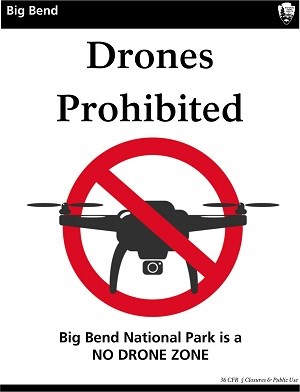
The National Park Service conserves and protects areas of untold beauty, grandeur and historical importance for current and future generations. The tradition of capturing images of these special places started with explorers who traveled with paint and canvas or cameras. Sharing these images helped inspire the creation of national parks. Today, visitors to national parks continue to memorialize their visits through filming and photography. On January 4, 2025, the EXPLORE Act was signed into law (Public Law 118-234) and has been codified at 54 U.S.C. 100905. Section 125 of the Act changed how the National Park Service will manage filming, photography, and audio recording in park areas. PermitsIn most cases, permits and fees are not required for filming, still photography, or audio recording that involves eight or fewer individuals. Larger crews and more complicated equipment/setup will require a permit.
All filming, still photography, and audio recording is treated the same. It does not matter whether it is commercial, non-commercial, for content creation, by a student, or conducted by media or for news gathering. When a filming, still photography, or audio recording permit is required, the National Park Service will charge location fees and fees (see below) to recover its costs to administer the permit, including application fees. Individuals and groups conducting filming, still photography, or audio recording remain subject to all other laws and regulations applicable to park visitors, including those requiring permits for certain activities (e.g., special events or demonstrations) and those prohibiting disturbance or other negative impacts to natural or cultural resources. 
RegulationsVideographers, filmers, producers, directors, news and other staff associated with filming are reminded that rules and regulations that apply to all park visitors are to be strictly followed. This includes NO DRONES, no entry into closed areas, group size limits, no closures of park roads or areas, no ground disturbance, or moving of natural features, etc. Approved filming and photography permits will contain specific conditions that must be followed. Check with the park filming permit coordintor for info on closures, sensitive resources, and other safety tips. Insurance RequirementProof of insurance is required and documentation must carry a commercial liability (minimum of $1 million) issued by a U.S. company. Insurance certificate must identify the production company by name and business address. The United States of America will be named "additional insured" on the insurance certificate. A refundable damage bond, drawn as a separate payment, may be required for those projects that have a high potential for resource damage or need for site restoration. 
What fees will I have to pay?The National Park Service will collect a cost recovery charge and a location fee for commercial filming and photography permits. Application Fee:Required, non-refundable. This $150.00 fee covers the cost of permit processing and administrative costs. This fee must be submitted along with the application. Location Fees:the National Park Service has been directed by Congress to collect a fee to provide a fair return to the United States for the use of park lands. The National Park Service uses the following location fee schedule: Filming
Still Photography
Monitoring Cost:Filming activities authorized by permit may require continuous, on-site supervision by the NPS to assure full compliance with all conditions of the permit. Monitoring will be charged at the rate of $50 per hour per staff member with a minimum of two hours per staff member, per day. The scope and complexity of the filming activity will determine the level and type of supervision. Fees may include travel time for employees involved between filming location(s) and employee duty station(s). Interviews:All interviews of park personnel will be assessed at the hourly rate. Pay OnlineBig Bend NP Permit Fees - Pay OnlineHow to Apply for a filming or photography permit
Film Permit Coordinator,
A request for a filming or photography permit may be denied if:
For More InformationPlease Submit: Application for Special Use Permit - Commercial Filming and Photographyor Application for Special Use Permit -Commercial Filming and Photography Long FormFrequently Asked QuestionsNo, provided the filming, still photography, or audio recording activity involves eight or fewer individuals and meets all of the following conditions:
If you believe that your filming, still photography, or audio recording activity may require a permit, please contact filming coordinator Steve Cape steve_cape@nps.gov or 432-477-1185 to discuss your project before submitting your application. You may need a permit if your group is more than eight individuals, or the activity does not meet the following conditions:
If you believe that your filming, still photography, or audio recording activity may require a permit, please contact filming coordinator Steve Cape at steve_cape@nps.gov or 432-477-1185 to discuss your project before submitting your application. No. A separate permit and fee payment is not required for filming, photography, or audio recording that is associated with a permitted event, such as a wedding, sporting event, demonstration or other activity.
All filming, still photography, and audio recording is treated the same under the new law. It does not matter whether it is commercial, non-commercial, for content creation, by a student, or conducted by media or for news gathering. You do not need a permit if the activity involves eight or fewer individuals and meets all of the following conditions:
When a permit is required, the National Park Service will charge location fees and fees to recover its costs to administer the permit, including application fees.
If you are planning a photography workshop, you may need a commercial use authorization. See the commercial use authorization page for more information. |
Last updated: September 5, 2025
